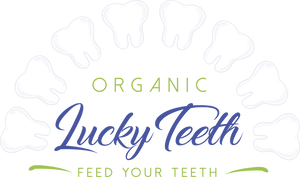
Brushing Your Teeth in The Morning: Should You Brush Your Teeth Before or After Breakfast?
You likely have a morning routine that you follow to the letter. Part of that routine should be brushing your teeth. You may wonder if you should delay brushing your teeth until after you’ve eaten breakfast. Here’s what you need to know about brushing your teeth and whether you should brush before or after you’ve eaten breakfast.
The Importance of Brushing Teeth Regularly
Besides wondering when you should brush your teeth, you may wonder how much you should brush your teeth. The American Dental Association recommends brushing at least twice a day.
They believe that brushing in the morning and before you go to bed is vital to your oral health. That’s because brushing in the morning removes any plaque and bacteria that may have tried to cover your teeth and eat away at your gums while you slept.
Since you’re sleeping, your mouth is usually closed. That creates a moist and hot environment for bacteria. It’s why you often wake with morning breath. Sleeping gives bacteria an ideal environment for growth.
Brushing your teeth at night is also important. It removes any lingering food debris you gained during the day and also removes bacteria and plaque before you sleep.
How Many Times Should You Brush Your Teeth in a Day?
You should certainly try to brush and floss your teeth twice a day. It’s also a good idea to brush your teeth after meals or snacks. Even after drinking coffee or tea is a great time to brush your teeth.
You may find yourself brushing your teeth as often as six or seven times a day if that’s the case.
The more often you can brush your teeth, the better for your health. This ensures that plaque and bacteria don’t have a chance to grow and eat away at your gums.
Brushing Your Teeth Before or After Breakfast?

This brings us to the question of whether you should brush before or after breakfast. Both have their advantages and disadvantages.
Brushing before breakfast means you’re able to remove bacteria and plaque from your mouth shortly after waking up. It reduces your morning breath which is likely appreciated by anyone within your vicinity.
The problem with brushing before breakfast is that it will make your breakfast taste different. Your tongue and tastebuds are still clinging to the detergents you used within your mouth.
It also means that you’ll have food debris in your mouth after you just brushed them.
That leads to the choice of brushing after you ate breakfast. The clear advantage is that it allows you to remove food debris that got stuck in your teeth after eating. This will ensure that you don’t have bad breath later. It also keeps bacteria growth at a minimum since it doesn’t have food to nourish itself.
The downside of waiting to brush your teeth after breakfast is that you have to go through a small portion of your morning with morning breath. This might not be ideal for some people who choose to wait to eat breakfast until they’re at work.
Which Is Better For Your Teeth?
When it comes to choosing between brushing before or after breakfast, the best option for your teeth is after you eat breakfast. You’ll want to remove food debris from your mouth rather than letting it linger throughout the day.
Ideally, you would brush both before and after breakfast, but if you don’t have the time, then brush after you eat breakfast.

Comments
I have been using Lucky Teeth bamboo charcoal floss for over a year now. I love the fact that no plastic is involved in making or shipping the floss, and my dentist is pleased with the health of my teeth. I was pleased to see that Lucky Teeth offers compostable. I find interdental brushes to be helpful but had to discontinue using them until I was able to order some compostable ones here. Thanks!
